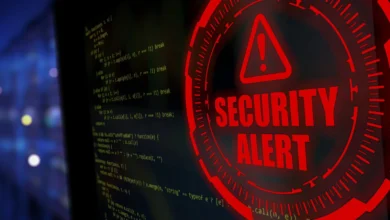Smart Contracts and Blockchain: The Future of Contract Management in 2023

Contract management is a critical process for any organization. Contracts are the backbone of business relationships, defining the terms and conditions under which companies operate. However, managing contracts can be a time-consuming and complex task that involves multiple parties and a significant amount of paperwork. This is where smart contracts and blockchain technology can revolutionize the contract management process.
Smart Contracts Explained
Smart contracts are self-executing agreements that are stored on a blockchain. They are programmed with a set of rules that are automatically executed when certain conditions are met. In other words, they eliminate the need for intermediaries or middlemen in the execution of a contract. This not only speeds up the process but also reduces costs and the risk of errors or disputes.
Smart contracts are built on blockchain technology, which provides a secure and transparent environment for storing and executing contracts. The blockchain is a distributed ledger that is maintained by a network of nodes. Each node has a copy of the ledger, and any changes made to the ledger are validated by the network. This ensures that the ledger is always up to date and tamper-proof.
Benefits of Smart Contracts
Smart contracts have several benefits over traditional contract management processes. Firstly, they are faster and more efficient. Since smart contracts are self-executing, they eliminate the need for intermediaries and reduce the time required for contract execution. Secondly, they are more secure. Smart contracts are stored on a blockchain, which provides a tamper-proof and transparent environment. This reduces the risk of fraud and ensures that contracts are executed as intended. Thirdly, they are more cost-effective. By eliminating intermediaries and reducing the time required for contract execution, smart contracts can significantly reduce costs associated with contract management.
Smart Contracts in Action
Smart contracts are already being used in several industries to improve contract management processes. For example, in the insurance industry, smart contracts are being used to automate claims processing. Instead of relying on intermediaries, smart contracts are used to automatically verify claims and execute payments. This not only speeds up the process but also reduces costs and the risk of errors or disputes.
In the real estate industry, smart contracts are being used to automate the process of buying and selling property. Instead of relying on intermediaries such as lawyers or real estate agents, smart contracts are used to execute the transfer of ownership and the release of funds. This not only speeds up the process but also reduces costs and the risk of fraud.
Smart contracts are also being used in supply chain management. By using smart contracts to track the movement of goods, companies can improve transparency and reduce the risk of fraud. For example, a smart contract can be used to automatically release payment when goods are delivered, ensuring that suppliers are paid on time and reducing the risk of disputes.
Challenges of Smart Contracts
While smart contracts offer several benefits, there are also some challenges that need to be addressed. Firstly, smart contracts are still a relatively new technology, and there is a lack of standardization in the industry. This can make it difficult for companies to implement smart contracts, as they may have to develop their own solutions or rely on third-party providers.
Secondly, smart contracts require a high level of technical expertise to develop and deploy. This can be a barrier for companies that do not have the necessary expertise or resources to implement smart contracts.
Thirdly, smart contracts are not suitable for all types of contracts. They are best suited for contracts that involve a high degree of automation and standardization, such as supply chain management or insurance claims processing. Contracts that involve complex negotiations or require a high degree of human input may not be well-suited for smart contracts.
The Future of Contract Management

Despite these challenges, smart contracts and blockchain technology have the potential to revolutionize the contract management process. As the technology continues to develop and become more widely adopted, we can expect to see an increasing number of industries and companies using smart contracts to streamline their contract management processes.
In the legal industry, smart contracts have the potential to automate the process of creating and executing legal agreements. This could significantly reduce the time and cost associated with legal processes, while also increasing the transparency and security of legal agreements.
In the healthcare industry, smart contracts could be used to automate the process of managing patient records and healthcare transactions. This could improve the efficiency of healthcare delivery while also ensuring the privacy and security of patient data.
In the financial industry, smart contracts could be used to automate the process of settling financial transactions. This could reduce the time and cost associated with traditional settlement processes, while also reducing the risk of errors or disputes.
Read More:Blockchain Technology: The Future of Business Transactions in2023
Conclusion
Smart contracts and blockchain technology offer a new and innovative approach to contract management. By eliminating intermediaries, reducing costs, and increasing transparency and security, smart contracts have the potential to revolutionize the way contracts are managed and executed.
While there are still challenges to be addressed, the potential benefits of smart contracts are too significant to ignore. As more companies and industries adopt this technology, we can expect to see a more efficient, secure, and transparent contract management process in the future.











